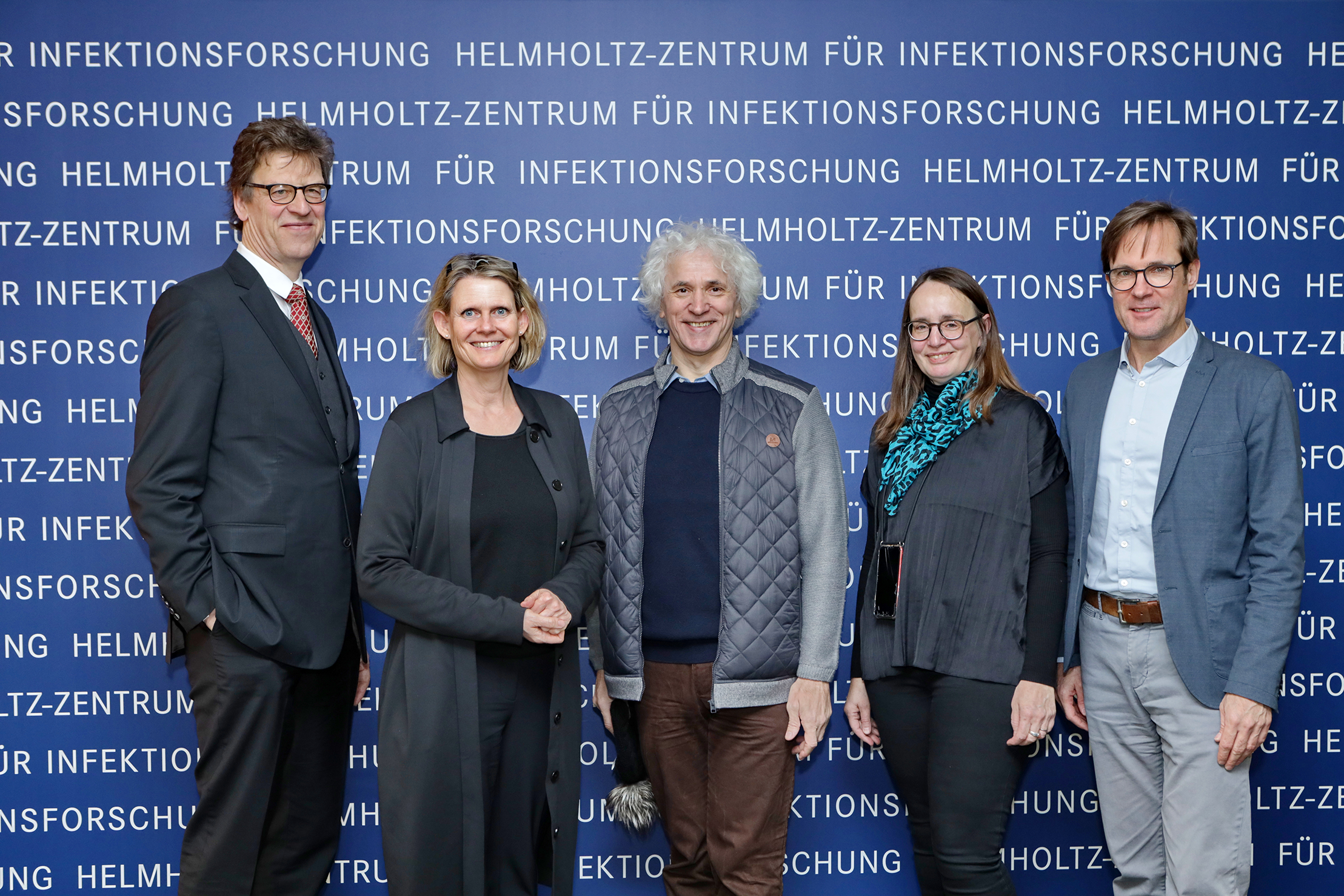The MICROSTAR project, with a volume of around 30 million euros, aims to find solutions to the increasing global challenges posed by infectious diseases. Over billions of years of evolution, all organisms have developed a variety of mechanisms to resist difficult conditions, disturbances and dangers. Bacteria and viruses, which have developed a broad spectrum of such resilience mechanisms, have been particularly successful. With MICROSTAR, the HZI researchers aim to gain a deeper understanding of these mechanisms and ultimately learn from the microbial world to meet the challenges posed by infectious diseases.
In the further program of the visit, State Secretary Pirscher visited the organoid platform currently under construction as well as the microscopy unit of the HZI. Organoids are three-dimensional tissue models in cell culture that can be used, for example, to test new active substances and therapeutic approaches. They are cultivated from human stem cells and have the characteristics of organs such as the intestine, brain, heart, kidney or lung. There are also plans to develop more complex organoids with immune cells and blood vessels. The organoid platform is being established at the HZI under the leadership of Josef Penninger and also serves as an alternative to animal experiments, which can be further reduced as a result. In addition, the organoids expand the spectrum of the HZI's microscopy unit, where individual organoids have already been cultivated in the past in order to visualize infection processes in more complex models. The establishment of the organoid platform makes it possible to carry out standardized experiments on a larger scale in the future and is currently unique worldwide. Judith Pirscher also gained insights into the animal facility and the biosafety level 3 laboratory from the HZI researchers.


